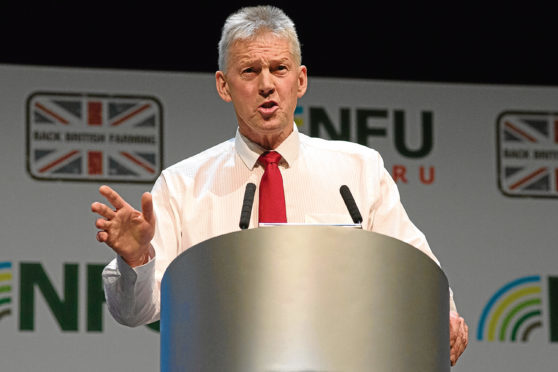In 32 days time Boris Johnson has promised we will leave the EU – do or die.
A month ago it was a stonewall bet that we would crash out with no deal which would have devastating consequences for both UK and Irish agriculture.
Since then Johnson has endured a torrid time – he lost his majority, he lost his attempts to call an early election and he lost the Supreme Court case over shutting down parliament.
He is now well and truly boxed in and hanging over him is the Benn law passed by parliament which will force him to go to Brussels and ask for a three-month extension unless he gets an EU deal that MPs will back.
His only way out is to reach a deal with the EU by October 17 or face the humiliation of asking for an extension, breaking the law or resigning as prime minister. Serious negotiations are now in full flow as he tries to find an alternative to the backstop which the Brexiteers all hate.
The massive trade in beef, sheep and dairy products between the UK and Ireland is centre stage in the talks.
The choice is simple – to avoid a hard border in Ireland the UK either continues to follow and abide by EU food rules which eliminates border inspections, or, alternatively, Northern Ireland stays aligned with the EU rules and the border checks are carried out at west coast ports such as Stranraer, in effect creating a border in the Irish Sea. The latter could seriously disadvantage Scottish and English farmers.
Johnson’s hope that the threat of no deal would force the Irish Government to soften its hardline position on the backstop does appear to be working.
Last week Irish commissioner Phil Hogan said “recent events in London give us cause for some optimism” when talking about a breakthrough in negotiations to secure an orderly British exit from the European Union.
The DUP, who until recently were utterly opposed to any kind of separate status for Northern Ireland, also appear to be softening their position towards some kind of all-Ireland agriculture trading area.
And the EU are keen to reach a deal allowing an orderly departure.
If – and it is a big if – there is compromise on all sides a deal may be possible. But the timescale is incredibly tight with less than three weeks to the October EU council meeting.
The view coming out of Brussels last week is that the sides are still quite far apart. Even if he secures some kind of rehashed May deal it is hard to see, given the brutal and divisive rhetoric Johnson used in parliament this week, how he persuades enough MPs to vote for it. So the chances of a deal being agreed in time is far from certain.
The currency markets however believe the chance of a no deal have receded with the pound strengthening against the Euro.
Farmers also seem to believe no deal won’t happen given the strong prices they are paying for store lambs.
Either that or they are so scunnered with the poisonous Brexit stalemate, they are ignoring it, and it is plentiful grass and fodder that is informing their buying decisions.
